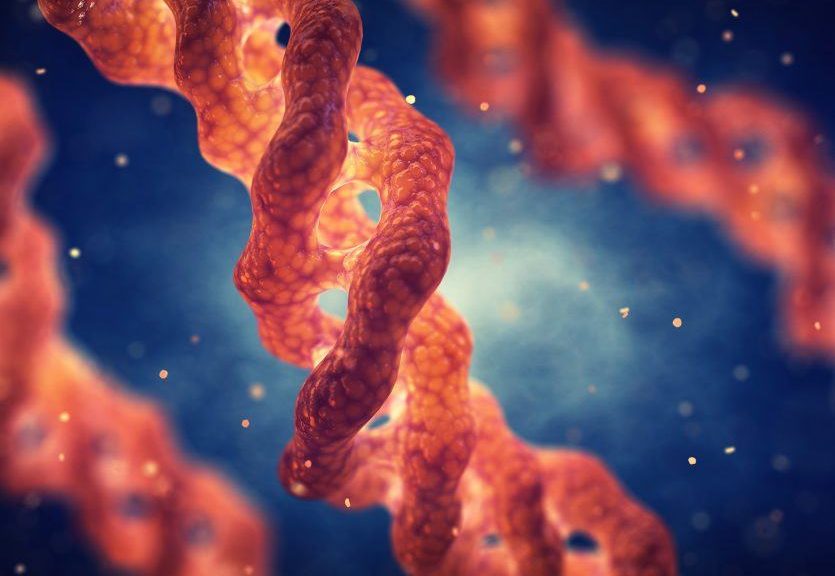
COLLAGEN
What is Collagen?
A protein that is one of the main building blocks of our skin, is found in our bones, tendons, and ligaments, Collagen is the substance that holds the body together. It forms a scaffold to provide strength and structure. It occurs throughout the body, but especially in the skin, bones, and connective tissues. The production declines with age and exposure to factors such as smoking and UV light. It is a hard, insoluble, and fibrous protein that makes up one-third of the protein in the human body. In most, the molecules are packed together to form long, thin fibrils. These act as supporting structures and anchor cells to each other. They give the skin strength and elasticity.
Types of Collagen:
There are many different types, but 80 to 90 percent of them belong to the I, II, III, and V types. These different types have different structures and functions.
Type I
Type I collagen is the most abundant protein found in humans (and in all vertebrates). It helps to form our skin, bones, tendons, corneas, blood vessel walls, and other connective tissues. Type I or type 1 collagen is the strongest type of them all. If you’re looking to support skin health, type 1 is a top choice since it’s literally a building block of the skin. Generally speaking, our production naturally decreases as we age, which is why many people are turning to supplements featuring type 1 to support healthy skin.
Type II
Type II is the majorly found in cartilage. Cartilage is the connective tissue that protects the ends of long bones at the joints. It’s also a structural component of the ear, the nose, the bronchial tubes, the rib cage, and more. Since type Ill helps to form the cartilage that protects our joints, it’s no wonder that this variety of collagen is often known for supporting healthy joints. Supplements featuring chicken collagen, such as chicken bone broth protein powder, can be great supplements featuring type II. Chicken collagen also inherently features chondroitin sulfate and glucosamine sulfate, which are both popular for supporting healthy joints.
Type III
Type III is fibrillar and is a major component of our skin and organs. In the body, type III is often found in the same locations as type I. Like type I, supplements often contain type III to support healthy skin. Another supplement option featuring mainly types I and III collagen is bovine collagen, derived from the muscles, bones, and skin of cows. These are two of the most abundant types in the human body.
Type IV
Type IV is one of the minor collagen components, forming interstitial collagen fibres along with type I collagen and plays a significant role in regulating the development of collagen fibres of connective tissue. It co-exists with type II in joint cartilage while supporting healthy collagen fibres of type II. Type IV collagen also functions to create the cells of a pregnant woman’s placenta, which is the organ that attaches to the lining of the womb. Type IV also helps to form cell surfaces and hair.
Benefits of Collagen:
- It gives body tissue structure, toughness, rigidity, and texture. In the skin, it’s akin to a layer of leather. And when it intermingles with elastic fibers, it gives skin strength and resilience When collagen begins to degrade in skin and levels drop in the body, you may notice wrinkles, stiffer tendons and ligaments, weaker muscles, joint pain, and even GI problems, It’s clear that collagen is vital for the health of every system in your body.
- Ingestion of collagen helps healthy nail growth
- It helps maintain the integrity of your cartilage, which is the rubber-like tissue that protects your joints.
- Injections can improve the contours of the skin and fill out depressions.
- It can help heal wounds by attracting new skin cells to the wound site. It promotes healing and provides a platform for new tissue growth.
- In periodontal and implant therapy, collagen-based membranes promote the growth of specific types of cells.
- Surgeons use collagen tissue grafts from donors in peripheral nerve regeneration, vascular prostheses, and arterial reconstruction.
- Supplements or formulations may help treat osteoarthritis.
- It is resorbable. This implies that the body can break it down, convert it, and absorb it back into the body. It can also form into compacted solids or lattice-like gels.
- Consuming supplements may help reduce the risk of bone disorders like osteoporosis. They have the potential to help increase BMD and lower levels of proteins in the blood that stimulate bone breakdown. Research has shown that consuming supplements increases muscle growth and strength in people with age-related muscle mass loss.
- Taking supplements may help reduce the risk factors associated with heart conditions such as atherosclerosis.
Nutrients that may support formation include:
- Proline: In egg whites, meat, cheese, soy, and cabbage.
- Anthocyanidins: In blackberries, blueberries, cherries, and raspberries.
- Vitamin C: In oranges, strawberries, peppers, and broccoli.
- Copper: In shellfish, nuts, red meat, and some drinking water.
- Vitamin A: Occurring in animal-derived foods and in plant foods as beta-carotene.
FAQ’s
Q: What is the purpose of collagen?
A: It is a protein that gives structure to skin, joints, and bones.
Q: What is collagen made of?
A: It is made up of three amino acids: glycine, proline, and hydroxyproline.
Q: What foods are high in collagen?
A: Protein-rich foods, like meat, eggs, fish and seafood, beans, and dairy will all supply your body with a range of amino acids needed to make collagen. Bone broth and gelatin are other foods that are collagen-rich.
USE COUPON CODE “BPC” TO AVAIL DISCOUNT ON INJA WELLNESS WEBSITE





